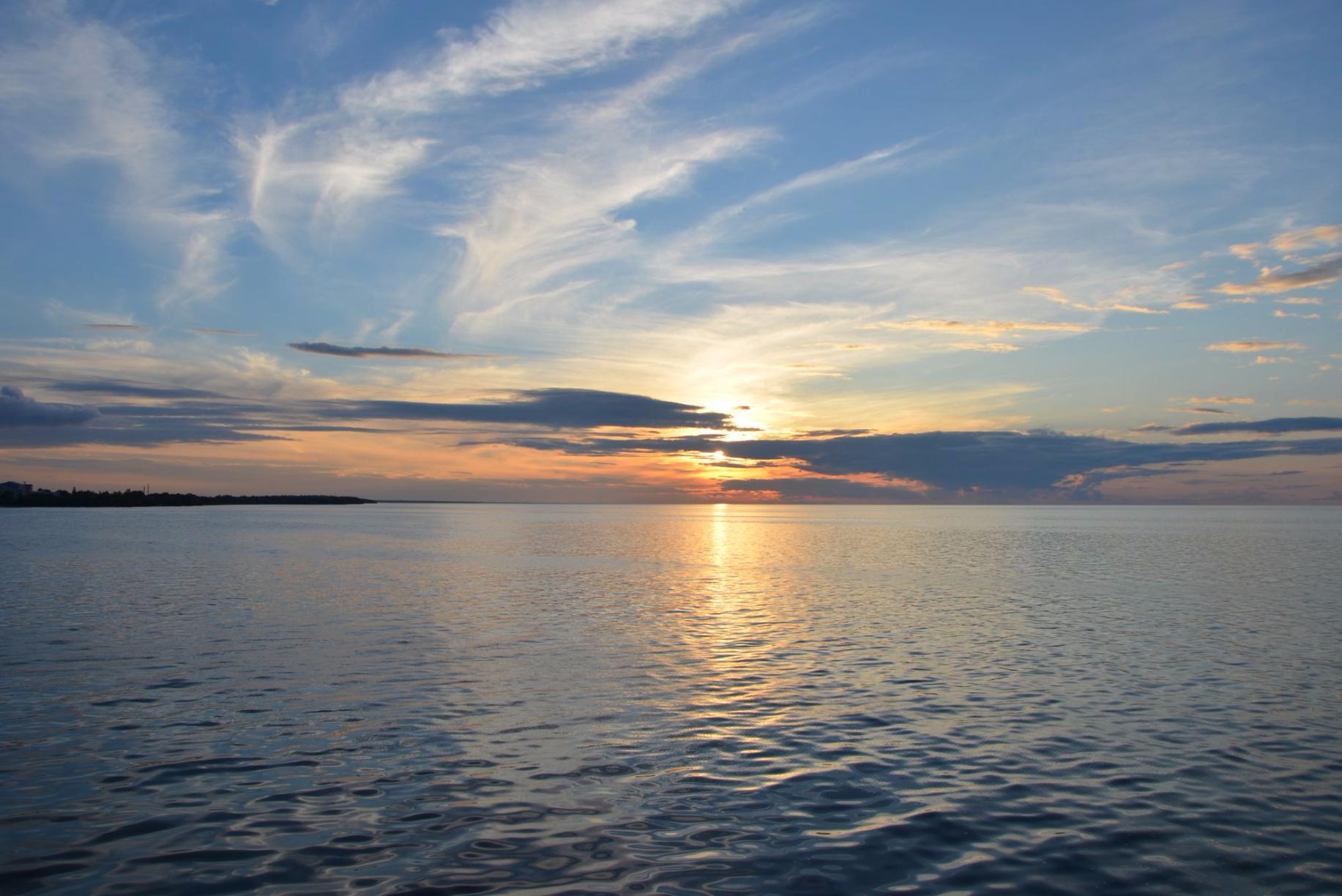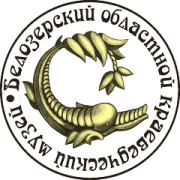White Lake

Praised in Sergey Orlov’s poems, White Lake belongs to the largest lakes in Europe ranking 7th among them. Its area is 1,290 km2. Its volume is 5.2 km3. Its absolute height is 113 m. Its average depth is 4.1 m and maximum one is 20 m. The town of Belozersk is located on the southern shore of White Lake.
26 rivers and creeks fall into White Lake. The biggest rivers are Kema, Kovzha and Shola. These 3 rivers make up 80% of water supply into White Lake. Two more rivers – Kunost and Megra – make up another 13% water of its total inflow. Just one river – Sheksna – falls out of the lake.
The main treasury of White Lake is its fish stock. 29 species of fish inhibit White Lake nowadays. Some of them are commercially important (pike, bream, sabrefish, whitebait, perch pike, Volga zander). The lake used to be rich in perch pikes, with their share amounting to 25% of a catch yield in the middle part of the 20th century.
They say: cities are lost by soldiers, taken by generals and presented by poets. Sergey Orlov presented Belozersk to us. Each time coming back to Belozersk, Sergey Orlov grew in as a personality and enriched his collection of poems as well. The Town, White Lake – such names were given by Sergey Orlov to his books of poems.
His passion for fishing woke up young Sergey Orlov at first light and gave many blessed dawns and night fires to him when girls and boys decided not to fall asleep at all casting their fishing rods and girders in the dark. However, fish as a catch yield, as a future fish soup or a pie entertained kids not so much because it was quite easy to catch a good perch pike or a bream in such fishing place where almost everyone had a whole package of fishing nets and boats.
Boys were attracted by the romantic appeal of such fishing trips. Stories either heard by someone from adults or read in books were sounded so unusual near night fires.
As for the latter, Sergey Orlov was unbeatable here. Being a son of a Russian language and literature teacher, he got used to reading first among rural children.
Night fishing trips were marvelous events. Yellow fire tongues were in boys’ face. Sparks flew up and blew out high up in the air. And аn accordion was heard making a sound along the towpath in the quiet night.
In Sergey Orlov’s postwar poems, White Lake became a generalized image of all things having enduring significance. It was a symbol of consistency and sustainability of being. So, having relation to eternity, “it will make people sad and happy in the world … and without us”. Eleven centuries ago, it was a guide of local people and named as a “silver shield” of the ancient town standing on its shore. It has features of sainthood embodying the idea of generational bridge. And what was especially important for Sergey Orlov, White Lake was a symbol of absolute beauty.
Вы верите в зеленые дворы?
Сергей Наровчатов
Я по мосткам скрипучим по дощатым
Прошел на лаву и через канал
На озере, — там, где песок крупчатый
Когда-то белым пламенем пылал.
Там нынче валунов гряда лежала
И с озером мешались облака.
Шагнешь и в небо упадешь, пожалуй,
И камнем камень в нем наверняка.
По горизонту весь в огнях, как город,
К причалу приближался теплоход,
А рядом двое с тихим разговором,
Девичьи руки белые на взлет.
В камнях сплетались медленные струи,
Звеня копилась в капельки роса,
Рождались тени, длились поцелуи,
Мерещились слова и голоса.
Я слышал, в далях звякали подковы
И воинская плакала труба.
«Да где же это поле Куликово?» —
Звала тревожно девичья мольба.
Ответный голос плыл по глади водной.
Звучал вблизи, уже во мне почти –
«Да что ты, это конных переходов
Считай не больше двадцати пяти».
Сошлись в ночи и годы и разлуки,
Я их не звал, а я их просто знал,
И я был юн и над плечами руки
На берегу в предгрозье разнимал.
И сразу «мессера» над головою,
Трещал прошитый пулями большак,
Гудериана танки под Москвою,
Ростов оставлен, к Волге рвется враг.
Шли эшелоны в заре багровом.
И где сходились небо и вода,
«Да где же это поле Куликово?» —
Звучало вновь, как в древние года.
И снова две зари передо мною,
Как жизнь назад, над озером горят,
Но уж не мы, а эти юных двое
Сейчас прощанье наше повторят.
Огни причала и огни простора
Сближала даль, как две цепочки звезд.
Сном праведника спал в березах город,
А мне в тревоге смутной не спалось.
В камнях сплетались медленные струи,
Звеня копилась в капельки роса,
Рождались тени, длились поцелуи,
Мерещились слова и голоса.
Казалось, вдруг раздастся снова,
Плеснет через разлуки и года:
«Да где же это поле Куликово?»
— Там, где сошлись и небо и вода.
